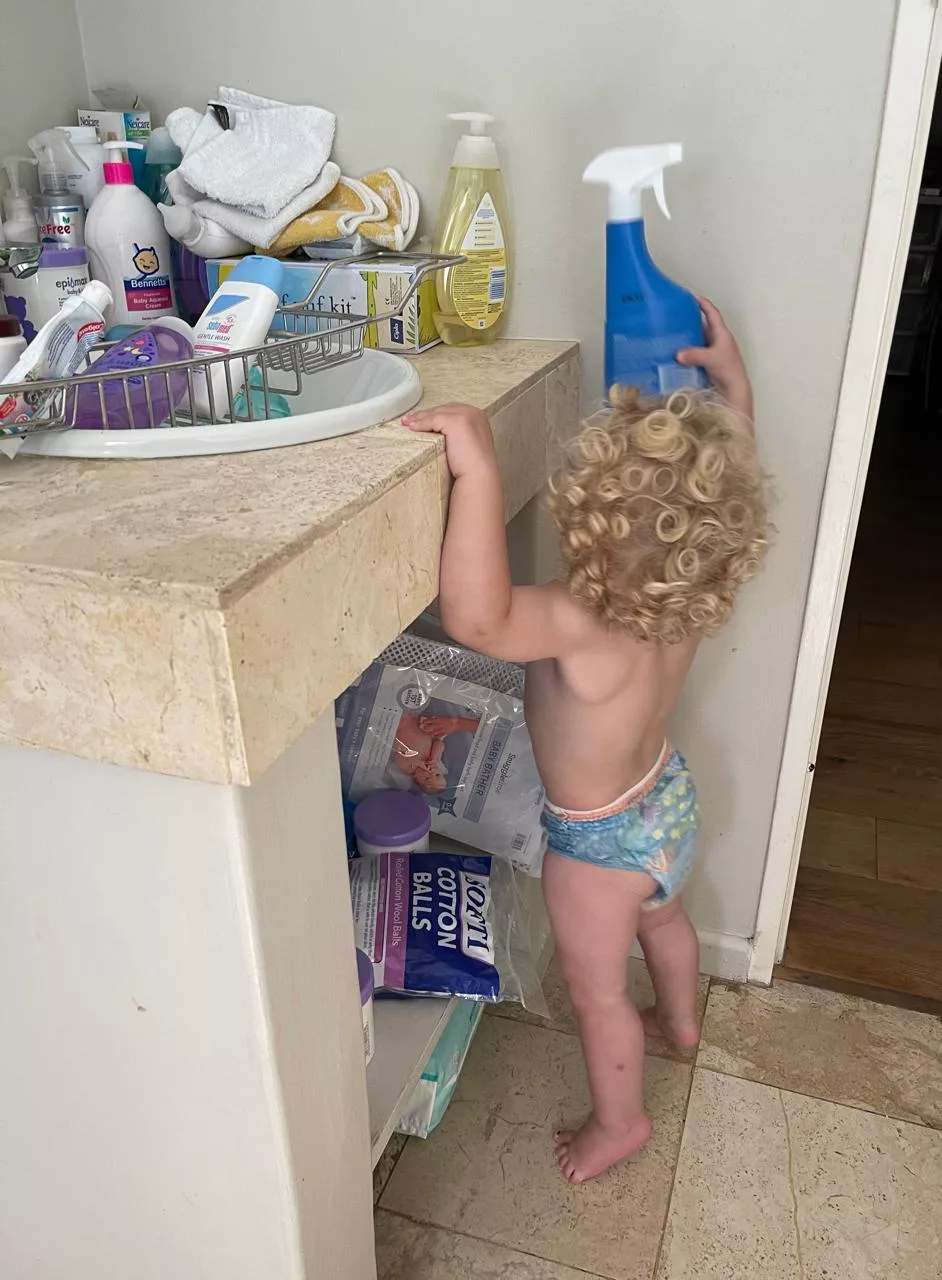Aidan’s earliest symptom of silent reflux, was evident on the day we got home from Life Kingsbury Hospital. He was three days old. I had popped him down in his brand new bassinet and my brother-in-law observed that he had hiccups. In new-mom-mode, I looked up whether or not that was normal and it didn’t seem to be anything to worry about at the time. But as the weeks went by, I noticed that Aidan frequently got hiccups when I laid him down. And most especially after feeds. We really struggled to burp him properly, sometimes it could take a half hour to get right, and there was always a pained expression on his little face until we succeeded. He cried day and night for months before we realised just exactly was going on for him.
By that stage he was sleeping in the baby nest between us at night. We propped the nest up at a slight slant with towels, to simplify bottle feeds during the long and sleepless nights, and accidentally discovered that sleeping on a slope seemed to ease whatever discomfort he was struggling with. We began to prop up every surface we had to lay him flat on using wedge pillows I found online, including his changing mat, and even his pram. This seemed to make a huge difference to his mood and physical wellbeing, though at that time, we didn’t understand exactly why. This is one of the earliest examples of us not knowing what to do, troubleshooting in the dark, and taking our cues from our baby’s own behaviour in order to adapt to his particular needs and give him comfort.
On one of our visits to the excellent Professor Claudia Gray, she diagnosed Aidan as having allergies and silent reflux. We had no idea that our tiny baby had been suffering with both this whole time. He was allergic to cow’s milk protein, and that was an ingredient in almost every formula we had tried with Aidan. Meaning, that every bottle we’d lovingly fed him, was delivering a feed that was making him sick and very uncomfortable. I remember being absolutely horrified by that – the not knowing that I was feeding our son something that was bad for him. For months!
The cow’s milk protein he’d been consuming had caused all sorts of gut issues, including chronic constipation, painful gas, and excessive stomach acid. Every time we laid Aidan down flat, that acid travelled up from his stomach into his oesophagus. Though he obviously couldn’t tell us what was happening, and we had no way to see it, his anguished cries had spurned us blindly into action to try to make changes for him. Professor Gray confirmed that propping him up as we had been, was exactly the right thing to do. It was such a relief to hear that we had at least got something right! She prescribed Aidan Nexium, which came in sachet form. Each night, I’d carefully mix the powder with the correct amount of water, suck it up into a small syringe, and try to administer it to Aidan.
This was when we first discovered that Aidan refused to take medicine – something we’re still battling with today, at three years old! He could just about tolerate a low dose of strawberry-flavoured Calpol, hidden in his formula bottles, to treat pain and fever. But any medicine that needed to be swallowed down undiluted, was virtually impossible to give him. We tried gently squirting the mixture into his mouth but it caused him to choke and cry. At that age and stage, Aidan was mouthing everything. Everything! His baby teeth had started coming through way early, and we had to watch him like a hawk as he picked up everything in his path, and gummed it. We decided to see if we could make the most of this, by putting the Nexiam-filled syringe down for him to pick up on his own. Success! Aidan was keen to check it out in his own time and way and I hovered nearby, waiting for an opportunity to gently administer it once the syringe was in his mouth. That worked quite well for a number of months. Further down the line, the goalposts would change again when he decided to stop cooperating with our tried and tested method, and we had to take a more determined approach. One of us would hold him on our laps in a bear hug, so that he couldn’t lift his arms. The other would put the syringe into his mouth against the inside of his cheek, and administer the medication as far back in his mouth as possible, so that there was a good chance he’d swallow most of it! We got this down to a fine art, moving as seamlessly and as quickly as possible to minimise his distress. It was an emotionally taxing experience for all of us in the beginning, but became second nature eventually. Like so many things, autism!
Two of the many, many things I wish that someone would have told us to look out for when our baby was born, is allergies and silent reflux. When you’re a new mom, you get so much unsolicited advice. Some of it is great, some bad, some unexpected, some bizarre, and some just plain crazy! Everyone has an opinion – especially on the right way to raise a child. And what I’ve noticed, is that people get really offended if you don’t take it. Because when you don’t, people seem to feel that you’re insinuating that they were bad parents. Grandparents are particularly sensitive on this issue, and seem to need to have you validate every choice they ever made in raising you, by you doing the same with your own kiddos. A new parent is constantly filtering mixed advice from all sides, trying to find some good in it, and make their own choices. But nobody ever told me to look out for the signs of allergy or silent reflux. And I wish with all my heart that we could’ve gotten some answers for Aidan much sooner than we did. Because when he’s not medically compromised, he is just the happiest, sweetest, most adorable little boy! He is pure and utter JOY! I wish I could take back every cry, every cramp, every sting of pain… but I can’t. All I can do is make other moms aware that this is something that they should ask their paediatricians to check for. So I’ve compiled a list of signs and symptoms of silent reflux for any worried mom out there, who could hopefully find answers for her child, a lot sooner than we did.
- Irritability & frequent crying
- Refusing to feed or trouble with feeding
- Not gaining weight as they should
- Back arching – particularly when feeding
- Coughing
- Hoarseness
- Gagging
- Trouble with burping
- Hiccups
- Nasal congestion
- Noisy breathing or wheezing
- Spitting up, particularly after feeds
- Vomiting, particularly after feeds
- Sensitivity to being laid down flat
- Sleep issues
- Sleep apnea



